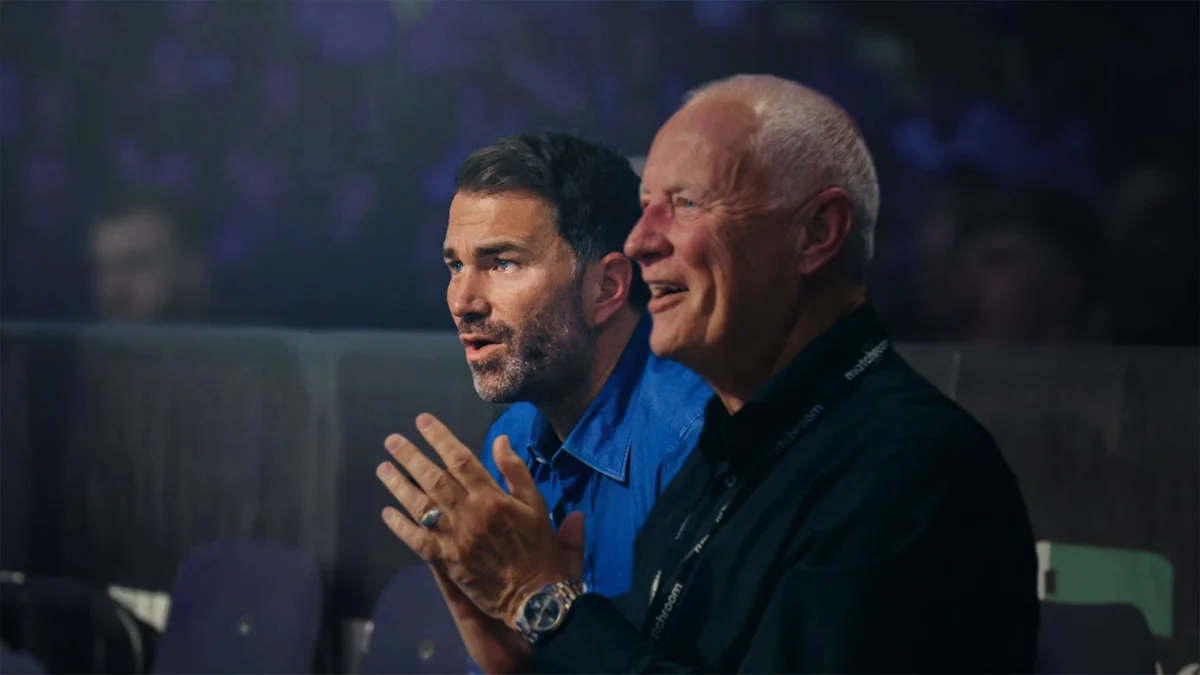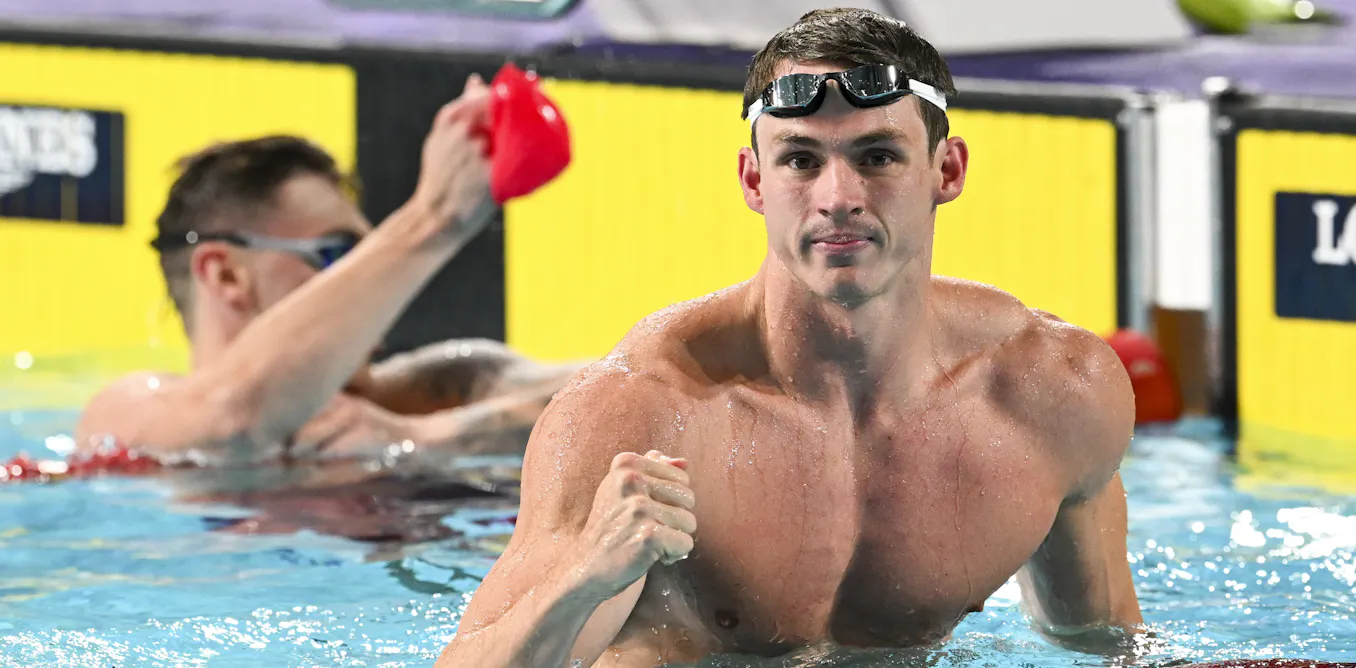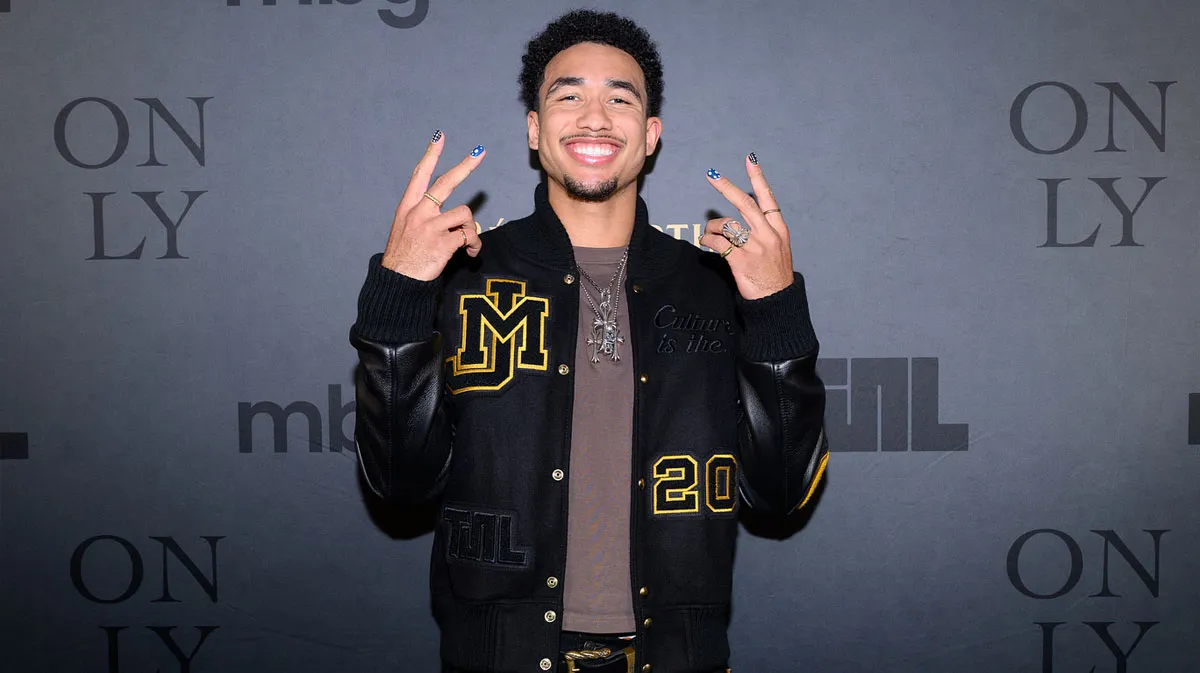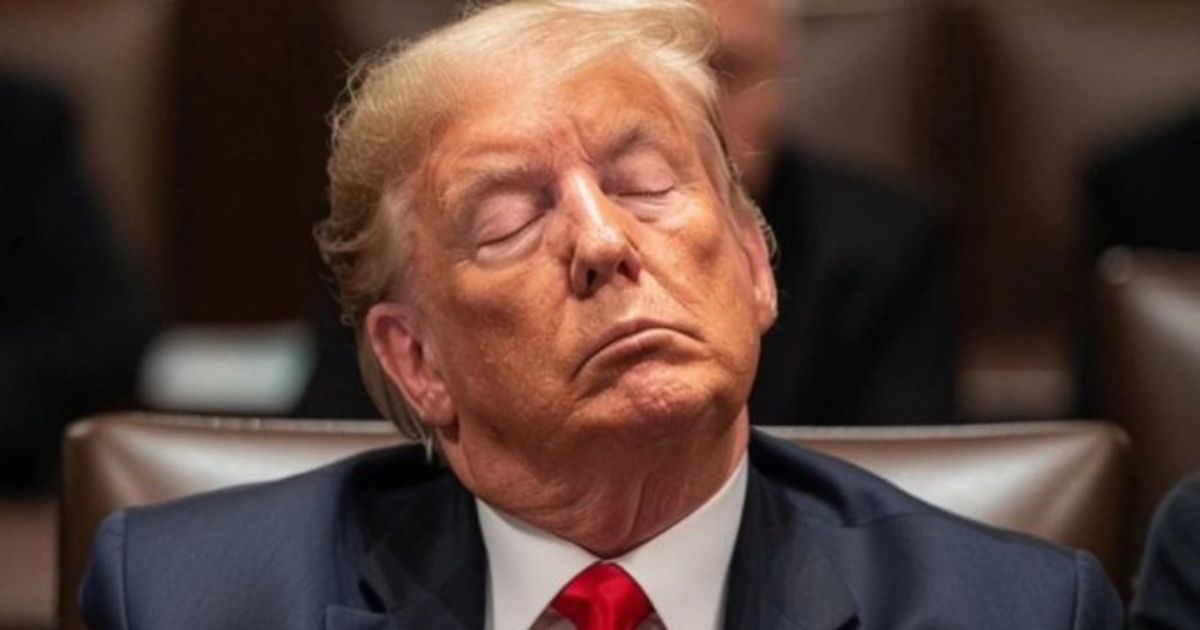‘It’d be massive if dad died in season 2!’ Matchroom’s Eddie and Barry Hearn on their new Netflix series
By Alex Pattle
Copyright independent

I feel like if you died in series 2, it’d be massive for the show,” Eddie Hearn jibes at his father Barry, his voice bouncing from one box of our Zoom call to another – from Riyadh to Brentwood. “You know, I was thinking exactly that the other night,” comes Barry’s reply. “What a crescendo! It’s a bit like Succession.”
Apologies for Barry’s spoiler, but it is a bit like Succession. Some of the exchanges between the Matchroom Sport duo – president Barry, 77, and chairman Eddie, 46 – zip like zingers from Jesse Armstrong’s comedic drama series about, well, succession in a family business. This unique chemistry between Eddie and Barry is one of the foundations of their new Netflix docu-series, Matchroom: The Greatest Showmen.
Produced by Formula 1: Drive To Survive team Box To Box Films, it takes viewers inside this family business of sports promotion. Boxing, darts, snooker; Anthony Joshua, Luke Littler, Ronnie O’Sullivan; pushing these sports with these athletes, Matchroom is inarguably a powerhouse in its industry. And for Eddie and Barry, the ultimate promoters, a Netflix series is the ultimate promotion.
And yes, the insight into the business is interesting, but perhaps not as much as the insight into the familial bond.
Eddie admits in one scene that his father raised him not to be an emotional man, with Barry now telling The Independent: “Emotion is a strength and weakness. Everybody wants to be a nice person, but as life gets more competitive, sometimes you’re not. When I was growing up in business, I don’t think I was the best father or husband or a particularly nice person. Eventually you get it right, but it was important for me in the early stages that Eddie didn’t grow up trusting everybody.”
“It’s an asset that I lack emotion in negotiations,” Eddie adds. “People who are driven are extremely selfish, and my dad is one of the most selfish men you could ever meet.” Barry chimes in, “True,” before Eddie resumes: “Still, he was a good dad. But the reality is it was him and the business first, and winning, and money. You just kind of follow your father’s traits. ‘Take no prisoners, win at all costs, the business is everything, and you need to make money.’”
Truthfully, there are moments when you can feel Box To Box’s hands gently steering the ship, as in Drive To Survive. For example, the premise established in the opening scenes is that Barry is not yet convinced Eddie is ready to take over, which feels a somewhat contrived narrative (indeed, perhaps inspired by Succession) given the younger man’s huge success in his own right.
By contrast, the show is at its best when Eddie is simply mic’d up and chased around backstage at a boxing event. This is a man, after all, whose sharp tongue birthed a subculture of memes within the boxing fraternity. “It’s been nearly two years of filming,” he says now. “It’s so nice to be at an event without these guys watching me come out the shower. You have to be free with it, to a point where… I’m sitting down with [boxer] Devin Haney at Wembley, he’s tweeted that I didn’t give him a ticket, and I’m telling him: ‘You f***ing listen here, you little… I will f****ing rip your head off.’ Then the argument stops and I look over at the Box To Box guy with his boom mic, giving me the thumbs up from 50 yards away.”
This scene, unfortunately, did not make the cut, though not necessarily because it wasn’t approved. “Very little had to be removed,” Hearn insists, and his backstage clash with Nakisa Bidarian – adviser to YouTuber-turned-boxer Jake Paul – is testament to this. Then there’s Hearn “going to get my pickled onion Monster Munch after AJ’s just been knocked out and the world’s come crashing down”.
“It’s raw,” says Eddie, who reveals he actually pitched the series several years ago as boxing’s answer to Drive To Survive, only for Box To Box to hone in on the Hearn story itself. And although the editing at times resembles that of a reality TV show, like Love Island, more than a hard-hitting documentary, there are genuinely emotional moments within. Barry’s health scare provides several, as the elder Hearn undergoes prostate surgery.
“We come from a family with a long history of heart conditions and dying in their 40s,” Barry says today. “I bucked the trend. I’m 77, three heart attacks down, and frankly I don’t spend one second thinking about it – not one second – because I don’t want to waste that second. I’ve got things to do. If it ends at 78, there can’t be a regret, because I couldn’t have given more.
“At some stage, I will die,” he adds, in a remarkably accepting tone, before his son jokes, “We don’t know how long this call is!”, leading into the exchange atop this article.
In another existential moment in the show, Barry poignantly admits to Emily Frazer, CEO of Matchroom Multi Sport: “I feel a bit embarrassed, because I think I’ve taken away quite a lot of your life.” Frazer, for her part, seems happy to say: “This is my life.”
Certain sagas feel like they could have had their own documentaries, like Conor Benn’s failed drug test and the build to his fight with Chris Eubank Jr. Given there are six episodes, perhaps the documentary would’ve worked better with one episode on the Hearns, one on Benn, one on Joshua, one on women’s boxing legend Katie Taylor, one on Littler, and one on O’Sullivan.
In any case, Benn’s fight ended in defeat, one of several examples of the documentary acknowledging Matchroom’s ‘failures’ in a certain sense; while Eddie and Barry stress that a business win is more important than a sporting win, there are several big defeats for Matchroom’s boxers (Benn’s against Eubank Jr, Joshua’s knockout loss to Daniel Dubois, Israil Madrimov’s loss to Terence Crawford, and a whitewash by rival promoter Frank Warren’s fighters at a head-to-head event).
The series concludes with Eddie, Barry and other higher-ups debating a potential sale to the Saudis, with whom they have worked closely in recent years. It is a controversial relationship, but one from which the Hearns do not shy away. Is a sale likely? A minority stake is certainly up for grabs, Barry says. But could the Hearns ever fully let go of a business that is a behemoth, yet still family run?
“It has to depend on the price,” Barry tells The Independent. You’d expect nothing less.



